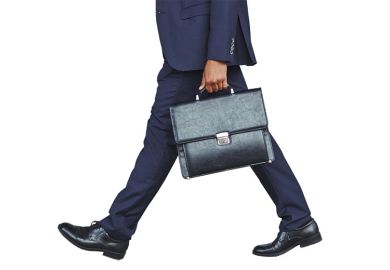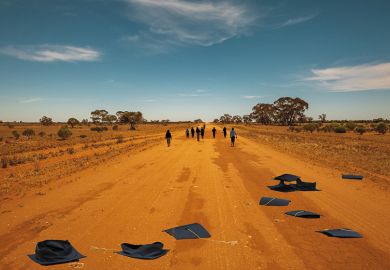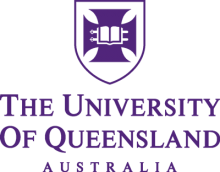Australian universities face a bruising and friendless election, as social issues crowd out key funding questions from political parties’ policy platforms.
With the poll set to be called imminently, the topics of primary interest to university lobbyists – cost pressures facing students and funding shortages exacerbated by last year’s international education crackdown – are being starved of airtime as politicians focus on universities’ perceived failings of their students, staff and neighbours.
Antisemitism, housing availability, sexual violence, “wage theft” and executive salaries are emerging as the prominent higher education issues as the major parties vie to outdo each other in demands for more accountability from university administrators.
Andrew Norton, professor of higher education policy at Monash University, said student debt was the only higher education election issue on which the main parties differed substantially. Labor has promised to wipe 20 per cent of accrued debt and overhaul loan repayment arrangements if it retains government.
The opposition Liberal-National coalition has slammed the debt forgiveness measure as “reckless spending” that will disproportionately benefit the wealthy, and has not said whether it supports the repayment changes. While neither proposal would benefit current students or universities, Norton said the issue could have some influence on the election outcome.
“There are about three million voters who have a Help [Higher Education Loan Programme] debt,” he said. “That is not a trivial number, and I assume a lot of them are in seats that are in contest in this campaign.”
The government has also orchestrated changes to lending regulations so that banks take less account of Help debt when they assess people’s capacity to repay mortgages, making it easier for some graduates to buy homes. But Norton said housing would play out more prominently in debates about international students as contributors to migration.
He said higher education normally did not “feature very much” in elections, other than “a couple of minor policies announced late in the campaign. I think this will be a bit different, because of the intersection with higher ed and housing.”
While the election must occur by 24 May, pundits say it could happen up to two months earlier and the result is too close to call. Opinion polls have the coalition ahead, and Victorian Labor suffered a major reversal in a recent by-election in the normally safe state seat of Werribee.
Some observers think a minority Labor government is the most likely outcome, but anything is possible amid a slide towards independent candidates. If Labor loses, it will have presided over the first single-term federal government since 1931.
Labor’s 2024 crusade to drive down international student numbers, largely because of their perceived impact on housing availability, culminated in last December’s reset of visa processing arrangements. The impact of this change remains to be seen, but opposition leader Peter Dutton has already promised to outdo Labor with “stricter caps on foreign students to relieve stress on city rental markets”.
The opposition has taken a similar approach on campus antisemitism, denouncing the government’s “appalling failure of leadership” in failing to enforce a crackdown.
The coalition has pushed for a judicial inquiry into antisemitism on campuses – a demand so far resisted by the government – and moved an amendment to include an antisemitism code in a bill to impose a mandatory gender-based violence code on universities.
Opposition backbenchers also want universities to be forced to adopt the contested International Holocaust Remembrance Alliance definition of antisemitism, overriding a Labor-led committee’s less prescriptive recommendation.
Meanwhile, Labor’s normally friendly rhetoric about universities evaporated when backbencher Tony Sheldon – who chairs the Senate’s Education and Employment Committee – commissioned an inquiry into the “lawless” sector’s governance.
“Australians deserve universities that put students and staff first, not the interests of university executives,” Sheldon said. “There’s no other job…where you can be paid so exorbitantly while performing so badly.”
A former political adviser told Times Higher Education that universities had been handed the role of “whipping boys” in this election – a role normally played by banks or airlines – with vice-chancellors assumed to be motivated exclusively by self-interest. He said politicians were unsympathetic because they were always perceived that way.
“There’s a kind of bipartisan narrative out there now that is critical of the universities and making them look like they’re bad citizens,” said Graeme Turner, emeritus professor of cultural studies at the University of Queensland.
Turner said academic administrators had “shot themselves in the foot” by handling the antisemitism and sexual violence issues “poorly”. But federal governments, which had spent decades shirking their higher education funding responsibilities, had exacerbated the sector’s image problem by goading universities to “behave like businesses”.
Ant Bagshaw, executive director of the Australian Technology Network of Universities, said “a lot of the oxygen” of the election debate would be taken up by “important social issues” like antisemitism and sexual harassment. But that should not rule out a focus on other problems, particularly student poverty.
“I’m realistic about how prominent higher education is within the public consciousness and in election campaigns,” Bagshaw said. “However, we have already seen the government come out with an offer to graduates. It would be great if there was…also room to consider students, particularly in the context of declining domestic demand.”
Norton said the focus on social licence issues would give the major parties a free pass to ignore research funding and student poverty during the election. But this was a “good” thing, he contended.
“During an election…is when the most half-baked and populist ideas will escape critical scrutiny and get into a policy,” he said. “That’s the last thing you want.”
Register to continue
Why register?
- Registration is free and only takes a moment
- Once registered, you can read 3 articles a month
- Sign up for our newsletter
Subscribe
Or subscribe for unlimited access to:
- Unlimited access to news, views, insights & reviews
- Digital editions
- Digital access to THE’s university and college rankings analysis
Already registered or a current subscriber?










